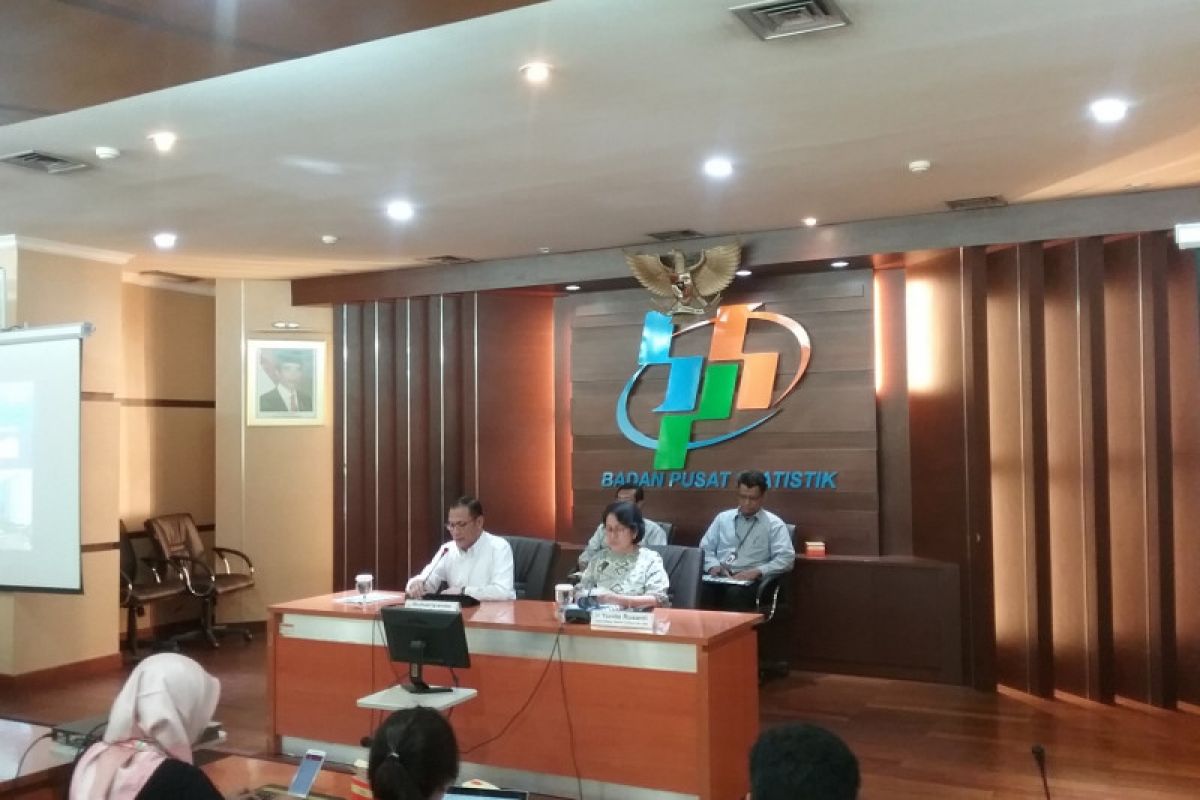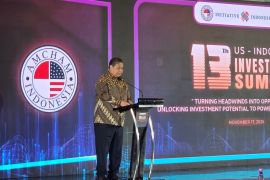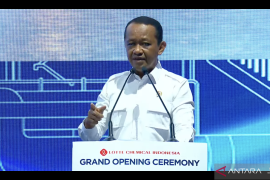"We hope that imports of capital goods may contribute to boosting economic growth in the last quarter of this year," Suhariyanto said here on Thursday.
Suhariyanto said imports of non-oil/gas commodities could contribute to increase in household consumption and form gross fixed capital, which has been one of the main drivers of the country`s economic growth.
He said imports of industrial basic materials and capital goods could increase investment and boost industrial sector in the last quarter of this year.
Indonesia has recorded a strong growth in import despite recent decision to impose tariff barriers on various commodities
"Despite postponement, there are still infrastructure projects that need immediate completion. Increase in the imports of capital goods is expected to increase Gross Fixed Capital Formation in the construction sector," he said.
In addition, imports of consumer goods could also contribute to household consumption in line with the strong seasonal demand in November and December, he said.
"Imports of consumer goods are expected to be increase household consumption in the fourth quarter of this year," he said.
Earlier, BPS announced Indonesia`s imports reached US$17.62 billion in October, up 23.66 percent from the same period last year.
Imports included US$14.71 billion in non-oil/gas commodities and US$2.91 billion in oil and oil products.
Imports of machines and mechanics devices accounted for the last part in value in October 2018 reaching US$2.54 billion, followed by electric machines and equipment valued at US$2 billion and iron and steel materials valued at US$1 billion.
Basic materials and auxiliary materials accounted for the largest in value reaching US$13.37 billion, followed by capital goods valued at US$2.75 billion and consumer goods US$1.5 billion.
Imports of capital goods shot up 28.58 percent year-on-year, and imports of basic materials or auxiliary materials rose 23.1 percent year-on-year and imports of consumer goods increased 20.04 percent on-year.
Indonesia posted a trade deficit US$1.82 billion in October 2018, swinging from a US$1 billion surplus in the same month a year earlier. Exports went up 3.59 percent to US$15.80 billion, beating expectations of 1.81 percent rise. Meanwhile, imports jumped 23.66 percent to US$17.62 billion, far above forecasts of a 9.2 percent gain.
The deficit contributed to widening the country`s current account deficit to US$8.8 billion from US$8 billion earlier.
Th government has slapped restriction in a number of goods in bid to reduce deficit in foreign trade and current account.
Analysts has attributed rupiah weakening against the U.S. dollar partly to high current account deficit.
Reporting by Satyagraha
Editing by Albert Saragih
Reporter: Antara
Editor: Andi Abdussalam
Copyright © ANTARA 2018












